Inflammatory Bowel Disease (IBD) Overview
Inflammatory bowel disease (IBD) is an umbrella term utilized to describe diseases that involve chronic inflammation of the digestive tract. There are two main types of IBD. The first one is ulcerative colitis. This disease causes long-lasting inflammation and sores (ulcers) in the innermost lining of patients’ large intestine (colon) and rectum. The second one is Crohn's disease. This type of IBD is characterized via inflammation of the lining of your digestive tract, which usually spreads deep into affected tissues. Both ulcerative colitis and Crohn's disease commonly involve severe diarrhea, abdominal pain, fatigue and weight loss. Signs and symptoms of IBD include diarrhea, fever and fatigue, abdominal pain and cramping, blood in your stool, reduced appetite, and unintended weight loss. Symptoms may range from mild to severe.
To date, the exact cause of IBD is not clear. Previously, diet and stress were suspected, but nowadays doctors think that these factors possibly aggravate but don't cause IBD. One possible cause is an immune system malfunction. When the immune system tries to fight off an invading virus or bacterium, an abnormal immune response results in the immune system to attack the cells in the digestive tract, too. Heredity also seems to play a role in the causes of IBD because it is more common in people who have family members with this disease. However, most people with IBD don't have this family history. Therefore, the exact cause of IBD is still exploring.
Main Signaling Pathways in Inflammatory Bowel Disease
Diagnosis of Inflammatory Bowel Disease
Doctors will likely diagnose IBD only after ruling out other possible causes for your signs and symptoms. To help confirm a diagnosis of IBD, patients need one or more of the following tests and procedures. Blood tests are two types, tests for anemia or infection and fecal occult blood test. The former one, using blood tests to check for anemia—a condition in which there aren't enough red blood cells to carry adequate oxygen to your tissues—or to check for signs of infection from bacteria or viruses. The last one, utilizing samples test for hidden blood in the stool. In terms of procedures, they mean endoscopic procedures and imaging procedures. Endoscopic procedures are five types. They are colonoscopy, flexible sigmoidoscopy, upper endoscopy, capsule endoscopy, and balloon-assisted enteroscopy. Except these, there are also several imaging procedures, including X-ray, computerized tomography (CT) scan and magnetic resonance imaging (MRI).
Targeted Therapy for Inflammatory Bowel Disease
The goal of IBD treatment is to decrease the inflammation that triggers your signs and symptoms. In the best cases, this may lead not only to symptom relief but also to long-term remission and reduced risks of complications. Historically, doctors have treated inflammatory bowel disease (IBD) using small molecules such as prednisone, budesonide, and mesalamine, along with immunosuppressive drugs such as azathioprine, 6-mercaptopurine, and methotrexate. Until infliximab (Remicade) was approved in 1998, one class of drugs called tumor necrosis factor (TNF)-alpha inhibitors, or biologics, works by neutralizing a protein produced by the immune system. They include infliximab (Remicade), and golimumab (Simponi). Other biologic therapies that may be used are natalizumab (Tysabri), vedolizumab (Entyvio) and ustekinumab (Stelara).
For research use only. Not intended for any clinical use.
This site is protected by reCAPTCHA and the Google Privacy Policy and Terms of Service apply.


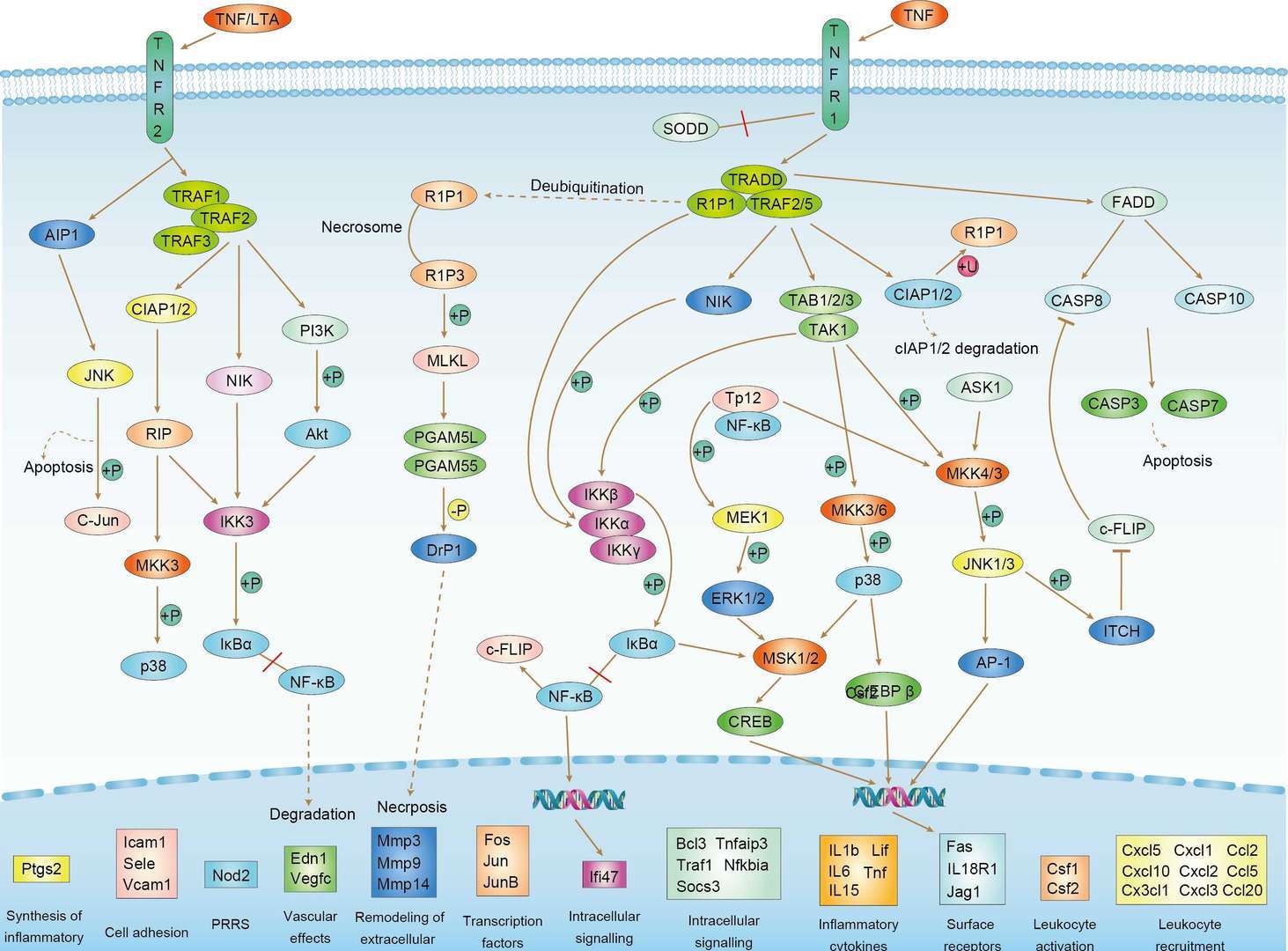 TNF Signaling Pathway
TNF Signaling Pathway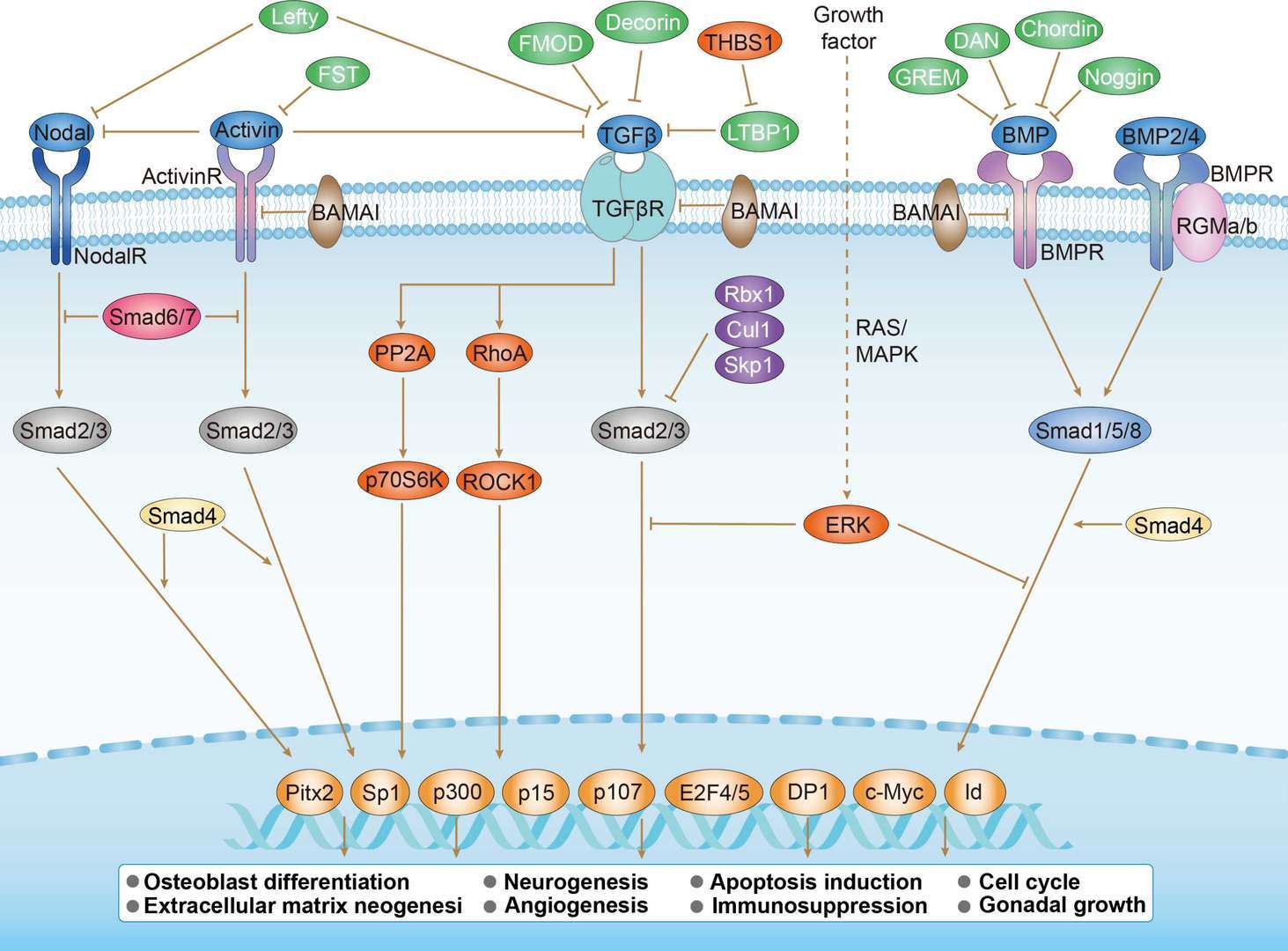 TGF-β Signaling Pathway
TGF-β Signaling Pathway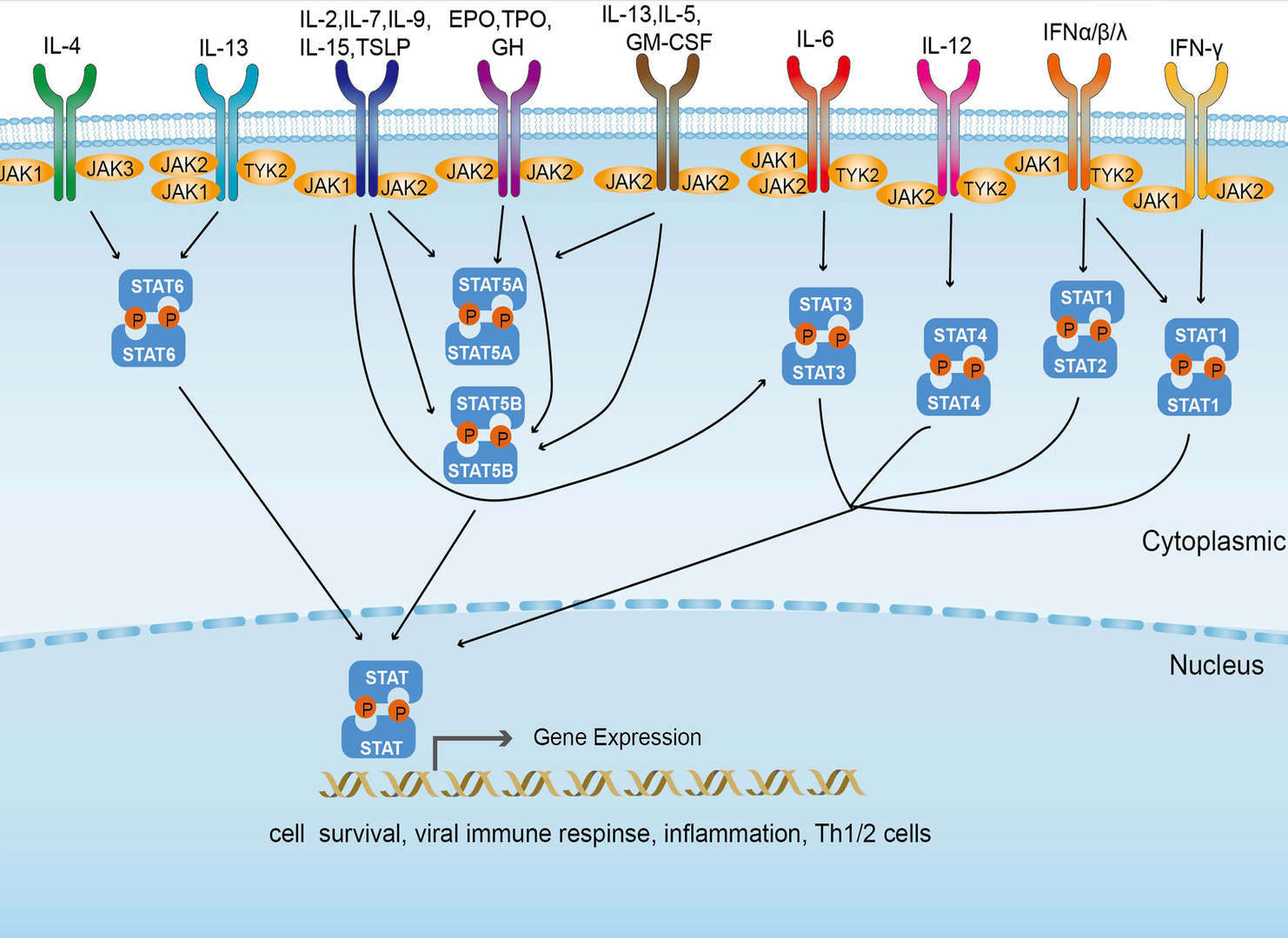 JAK-STAT Signaling Pathway
JAK-STAT Signaling Pathway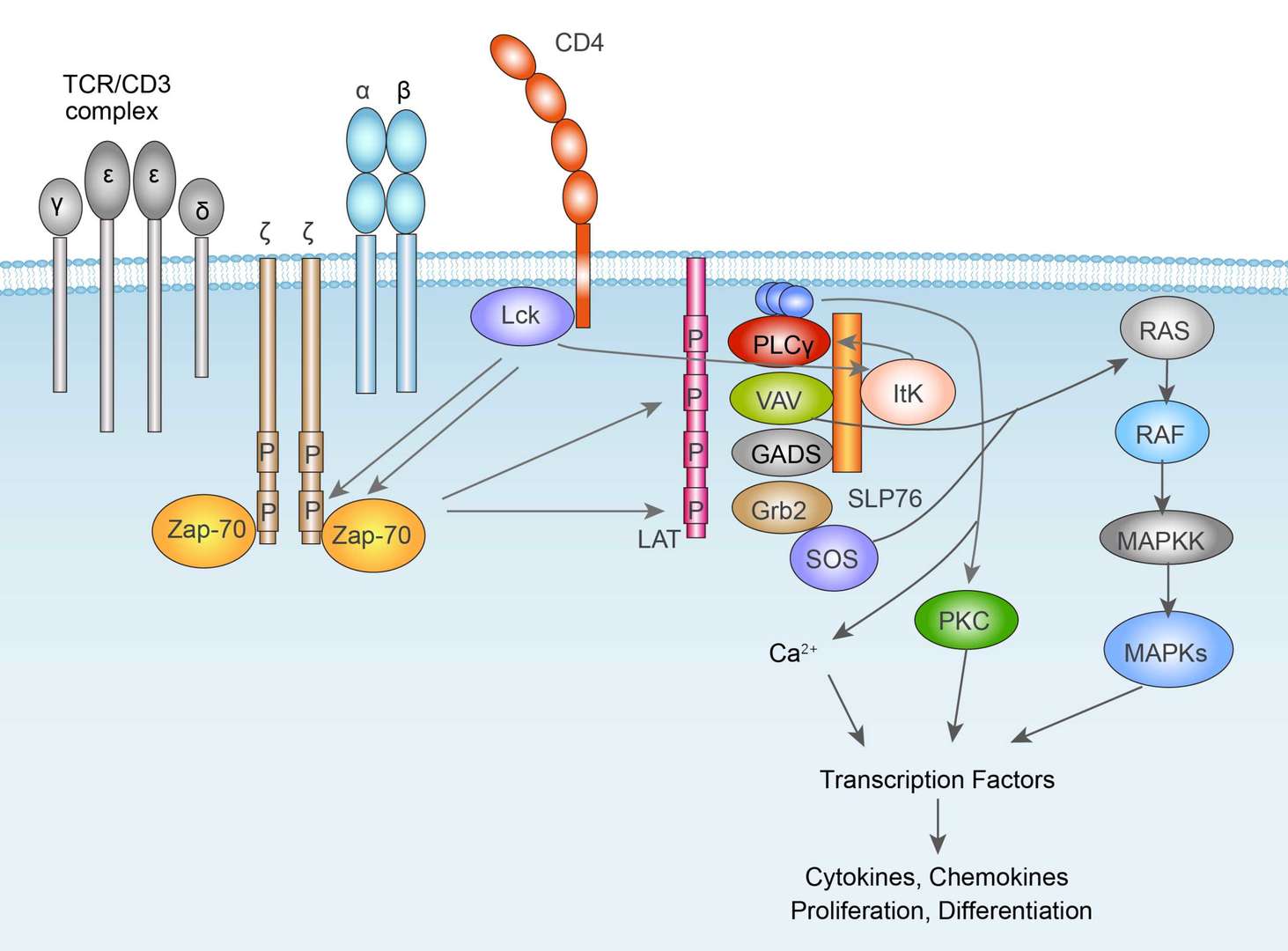 TCR Signaling Pathway
TCR Signaling Pathway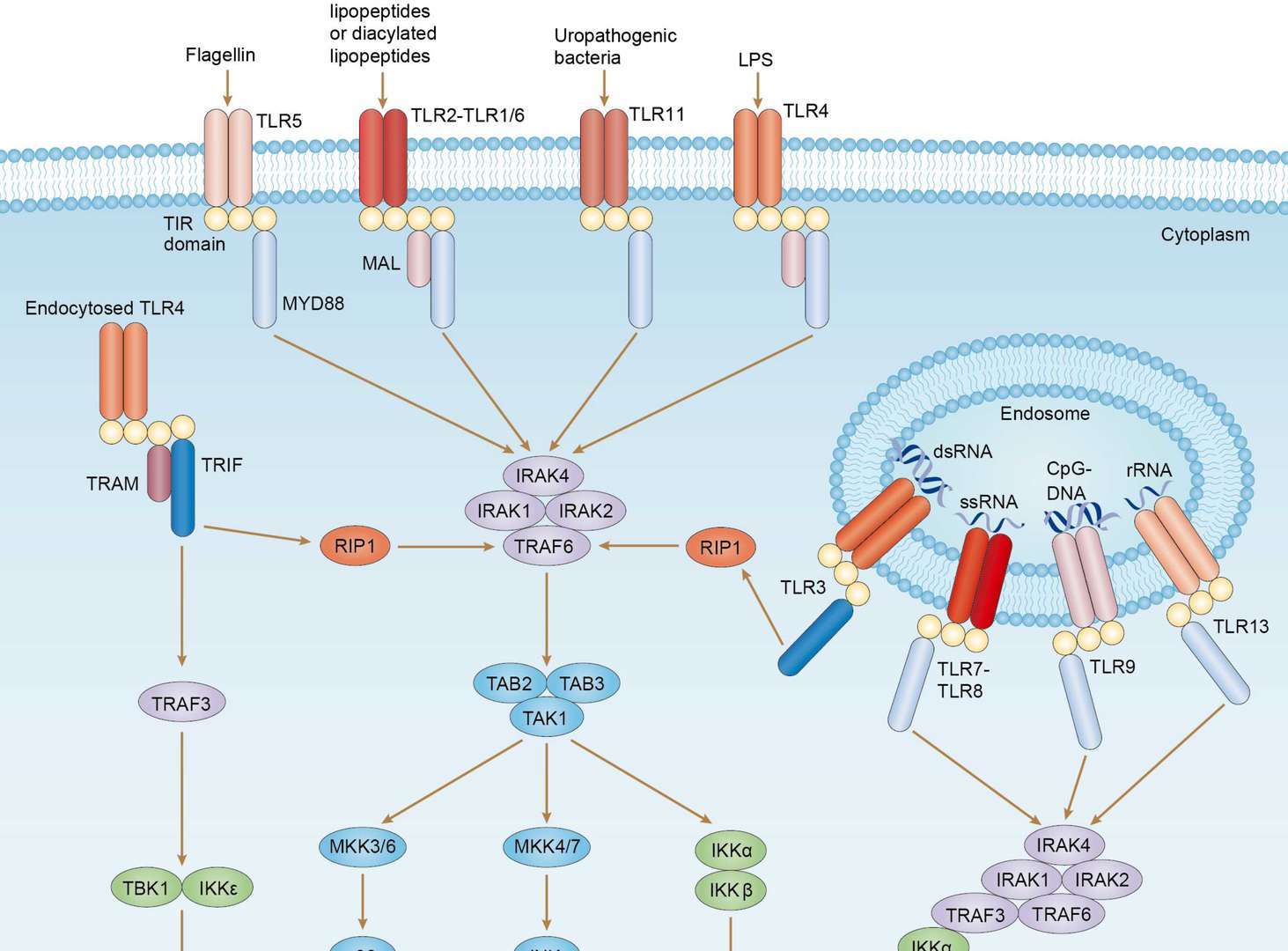 TLR Signaling Pathway
TLR Signaling Pathway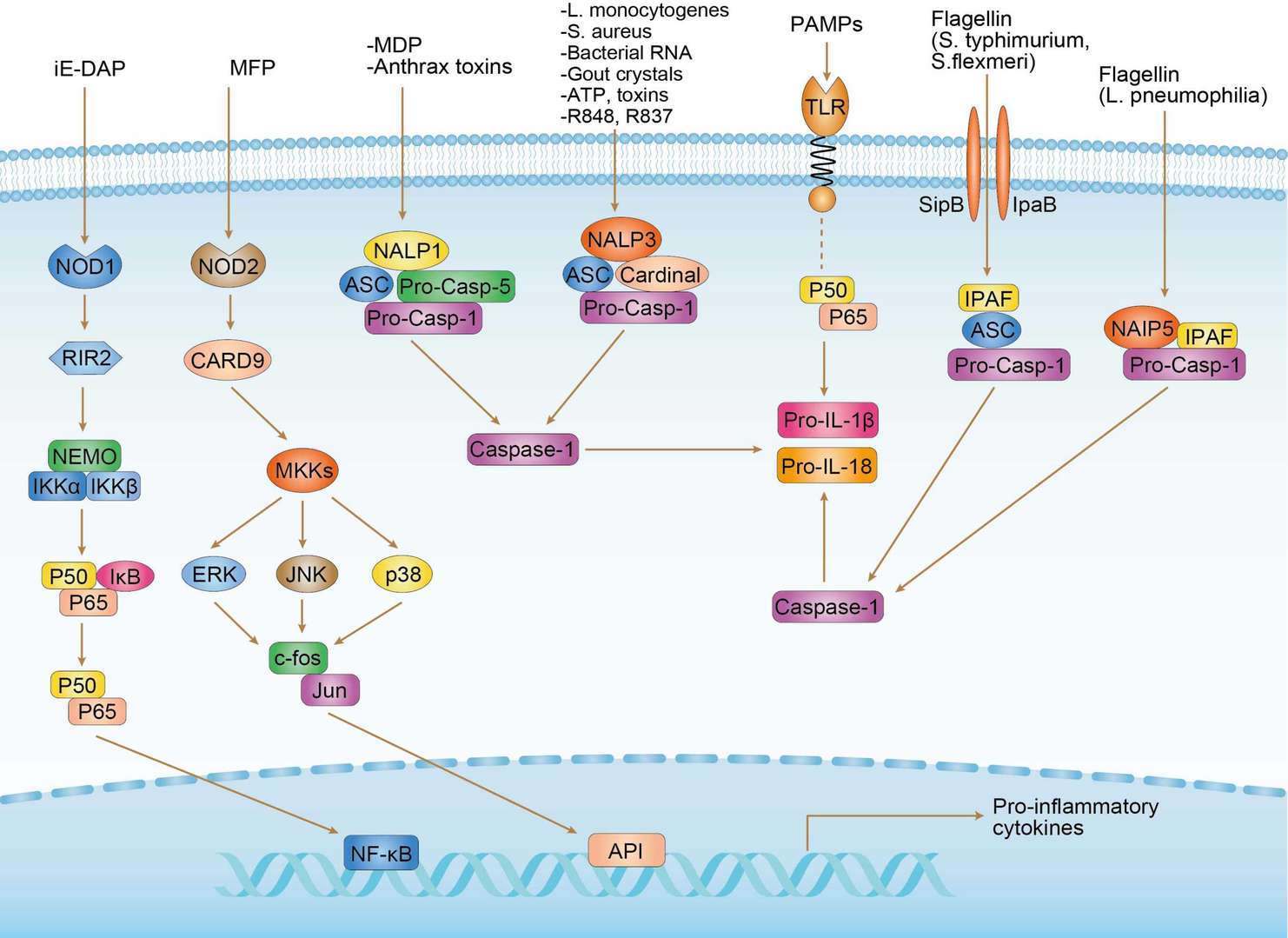 NLR Signaling Pathway
NLR Signaling Pathway
